If you’ve fallen in love with the idea of eloping in Iceland, standing beneath a waterfall, surrounded by black sand beaches, glaciers, or endless mossy hills, you’re not alone. Iceland has become one of the most popular elopement destinations in the world, and for good reason. It’s dramatic, intimate, and feels like another planet in the best way.
But before you pack your wedding attire and hop on a plane, there’s one big question to answer: Can you legally get married in Iceland as a foreigner? As an elopement photographer in Iceland who specializes in destination elopements, one of the most important parts of my jobs is helping couples navigate permits, local regulations, and land-use laws so they can elope legally and responsibly.
Let’s break down everything you need to know about Iceland elopement laws, permits, and how most couples actually make it happen, so you can plan with confidence and avoid the headaches that come with international paperwork.
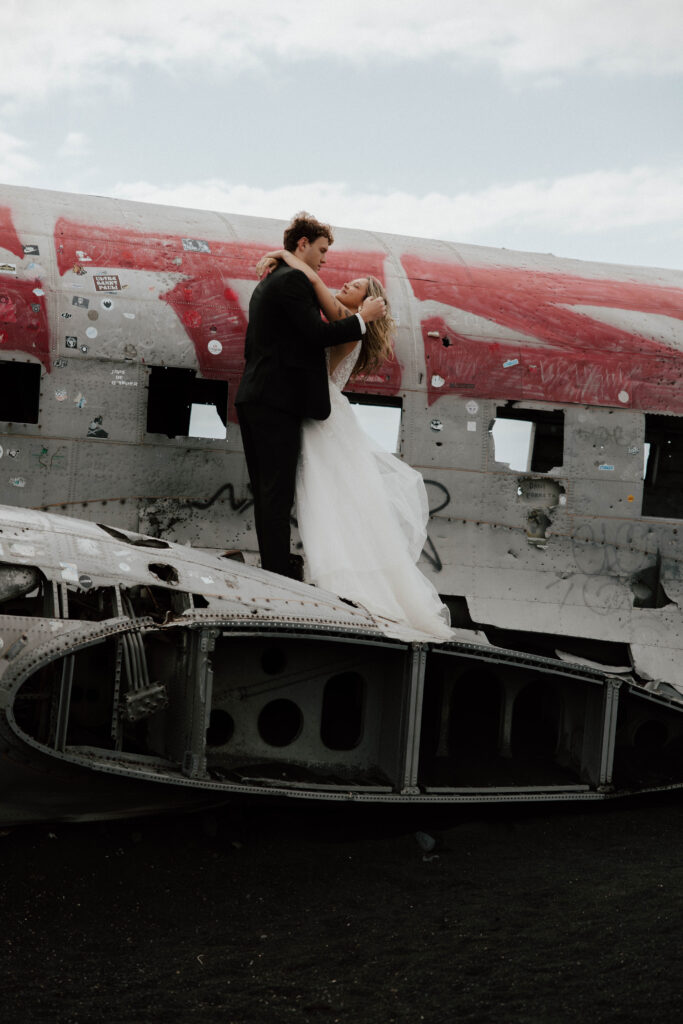
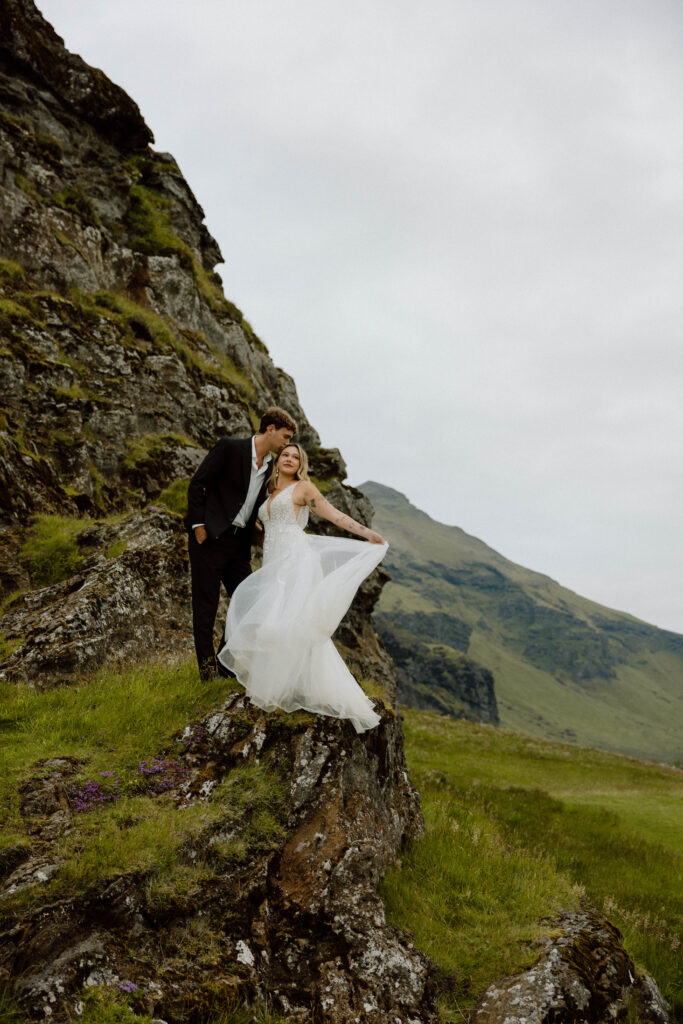
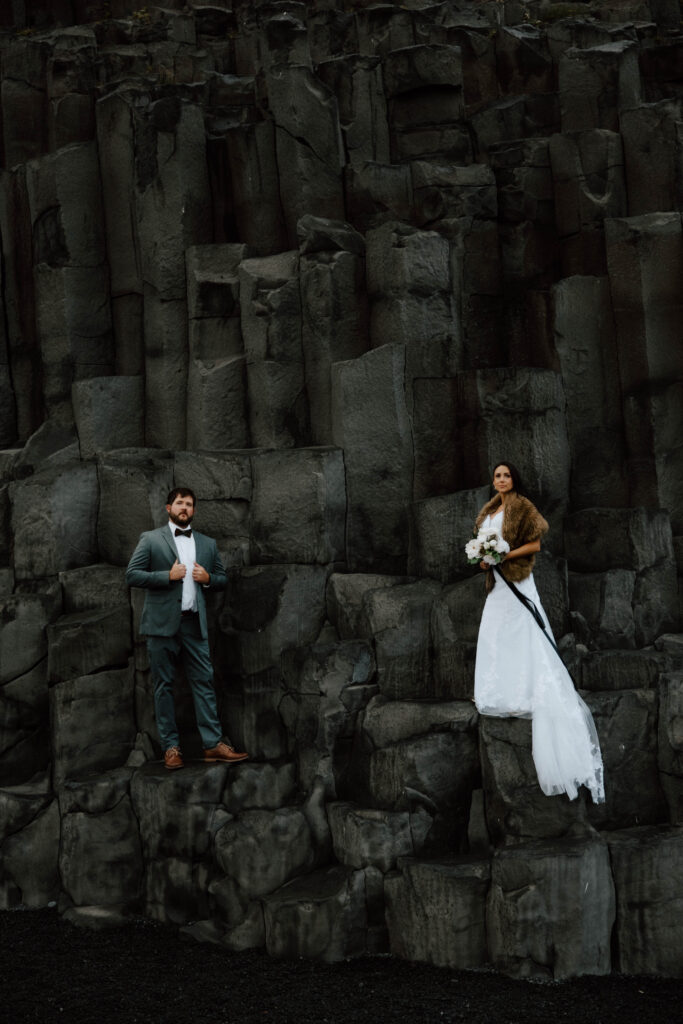
Can You Legally Get Married in Iceland?
Yes, you can legally get married in Iceland as a foreigner. However, it’s not quite as simple as showing up at a waterfall and saying your vows (no matter how cinematic that sounds). Iceland has specific legal requirements for international couples, and the process involves some paperwork that needs to be completed weeks before you arrive.
To legally marry in Iceland, you’ll need to:
• Submit official documents such as birth certificates, valid passports, proof of marital status (like a Certificate of No Impediment), and divorce or death certificates if applicable.
• Have those documents translated and certified if they aren’t in English or a Scandinavian language.
• Send all documents to Iceland’s National Registry or the local District Commissioner’s office at least three weeks before your wedding date.
• Use an approved officiant and two witnesses for the ceremony.
Sounds manageable, right? The tricky part is that paperwork often has to go through multiple offices for authentication, and requirements can vary depending on where you live. This process can get complicated fast, especially if you’re traveling internationally just for your elopement.
Why Most Couples Choose a Symbolic Ceremony
Here’s the good news: you don’t have to legally marry in Iceland to have your dream elopement there.
Most of my couples actually get legally married at home in the States first (a simple courthouse ceremony does the trick) and then have a symbolic ceremony in Iceland. That way, you can focus entirely on the experience—your vows, the landscape, and each other—without stressing about international legalities or deadlines.
A symbolic elopement gives you complete freedom to:
• Choose any location, even remote spots without officials
• Avoid paperwork, translations, and extra fees
• Plan a ceremony that’s completely personal and stress-free
And honestly, it doesn’t make the day feel any less meaningful. I’ve photographed couples exchanging vows at Skógafoss, Dyrhólaey, and Búðakirkja—laughing, crying, and soaking in the moment as if it were their “official” wedding (because to them, it is).
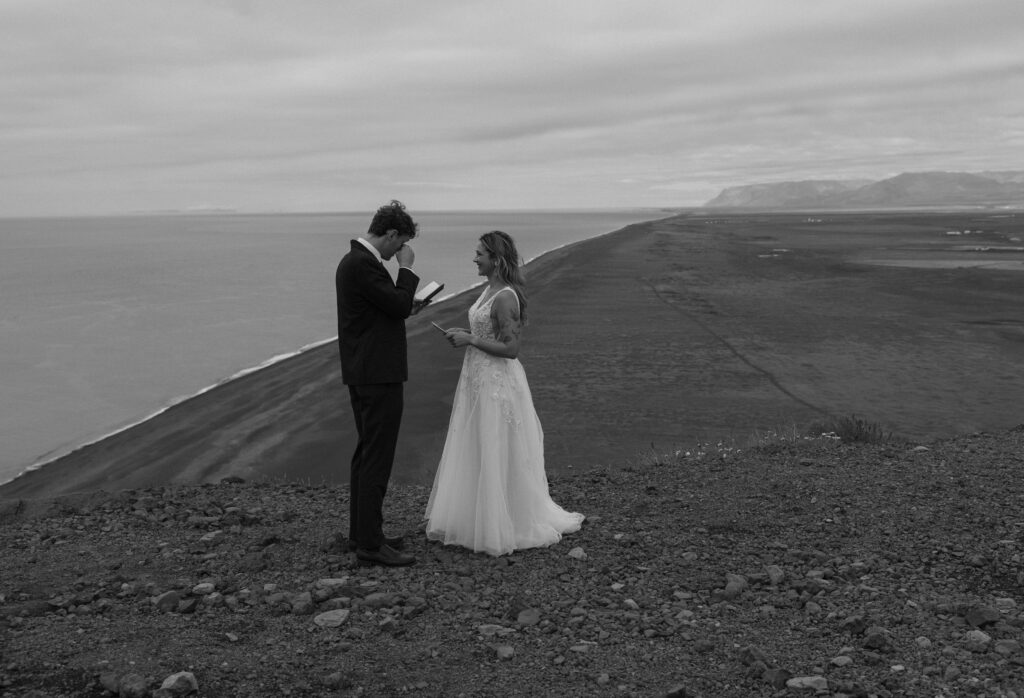
Permits & Location Rules in Iceland
The great thing about Iceland is that most elopement spots don’t require a formal permit for small ceremonies or photo sessions. However, there are a few exceptions and rules to keep in mind:
• Public lands: Many waterfalls, beaches, and cliffs are open to the public and don’t require a permit for small, private elopements.
• Protected areas: Certain locations—like parts of Þingvellir National Park or restricted natural reserves—may require special permission or coordination with park rangers.
• Private property: If your chosen location is on private land (for example, near a guesthouse or farm), you’ll need permission from the landowner.
• Leave No Trace: Iceland’s ecosystems are fragile, so always stay on designated paths and avoid disturbing moss, sand dunes, or nesting birds.
If you’re unsure whether a spot needs a permit, your local planner or photographer (hi!) can help confirm that and handle any communication with authorities or landowners.
How to Make It Official (If You Really Want To)
If you’re set on legally marrying in Iceland, it’s absolutely possible—it just requires a little extra effort and planning ahead.
Here’s a simplified timeline:
1. Gather and notarize all necessary documents in your home country.
2. Translate and apostille them (if needed).
3. Send everything to the District Commissioner at least three weeks before your wedding date.
4. Meet with your officiant and two witnesses in Iceland to sign your marriage documents.
5. Receive your Icelandic marriage certificate (which can later be recognized in your home country).
Working with an Iceland-based planner or officiant can make this process much smoother—they’ll know the exact forms, timelines, and who to contact.
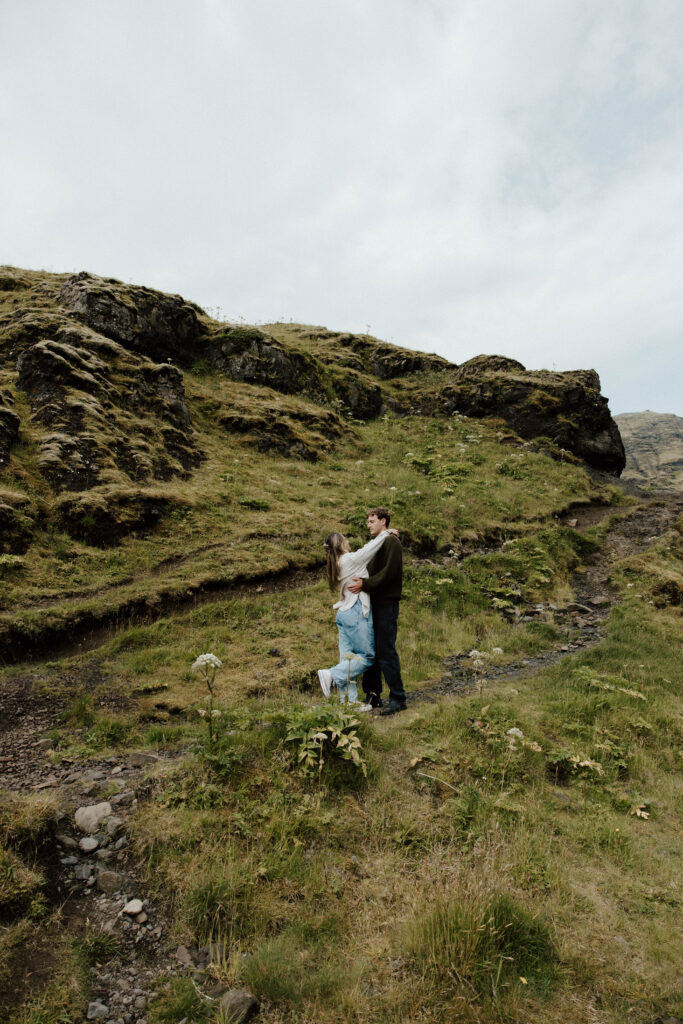

Final Thoughts: Keep It Simple, Keep It Meaningful
Whether you legally marry in Iceland or opt for a symbolic ceremony, your elopement day is about so much more than paperwork. It’s about creating an experience that feels true to you—one filled with joy, adventure, and the wild beauty of Iceland.
Personally, I love when couples take the stress off by handling the legal side at home first. That way, when you’re standing beneath a waterfall, wrapped in the Icelandic mist, you can focus on the moment—not the logistics.
Ready to plan your Iceland elopement?
Whether you’re dreaming of a windswept ceremony at Dyrhólaey or a cozy exchange of vows near the Black Church at Búðir, I help couples create intentional, unforgettable elopement experiences across Iceland.
Contact me to start planning your dream Iceland adventure.